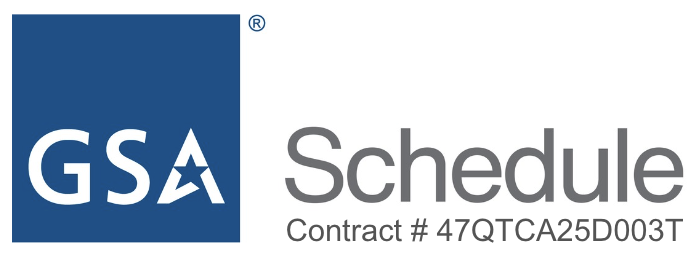
Men’s Health Week isn’t just about getting in a quick workout or scheduling a doctor’s visit (though those are great starts). It’s about looking at the full picture—how your body feels, where your head is, and whether you’re feeling connected to the people around you. Being healthy is more about how you live, not what you avoid.
Why It’s Worth Your Time
The Centers for Disease Control and Prevention (CDC) reports that women are 33% more likely to visit the doctor than men and twice as likely to seek preventive health care. But skipping checkups and ignoring symptoms doesn’t make them go away—it usually just makes things harder down the road. In fact, 13.2% of men aged 18 and over report being in fair or poor health. That number doesn’t have to include you.
Men’s Health Week (the one that leads up to Father’s Day) is a chance to reset. It’s part of a bigger effort—Men’s Health Month—to encourage early detection, healthier habits, and the kind of care that lasts.
Your Decade, Your Health
Whether you’re in your 20s, 40s, 60s, or beyond, your health needs to shift—but the basics stay the same: stay informed, stay engaged, and act when something doesn’t feel right.
Here are some key checkpoints to keep on your radar:
- • Annual physicals
- • Blood pressure + cholesterol checks
- • Screenings for prostate, colon, and skin cancer
- • Mental health check-ins (yes, those count too)
- • Vaccines (flu, shingles, COVID-19, HPV)
- • Bone health and fall risk assessments (especially after 65)
Preventive care is important—but it’s just one piece of the puzzle.
Everyday Moves That Make a Big Difference
Being healthy isn’t about being perfect. It’s about progress. Here are a few ways to show up for your health—on your own terms:
Speak Up at Appointments
You’re the expert on your own body. Be honest with your provider. Ask questions. Say what’s on your mind.
Move Your Body
You don’t need to be a gym rat. Just find something that gets you moving—walking, biking, playing catch, dancing in the kitchen. What matters is consistency, not perfection.
Quit Smoking
No judgment—just facts. Quitting is hard, but your body bounces back faster than you think. It’s one of the best things you can do for your health.
Eat Whole Foods
No fad diets here. Just whole foods, smart portions, and enough variety to keep your body (and brain) feeling good.
Get Screened and Get Vaccinated
Preventive care isn’t just about avoiding illness—it’s about staying ahead of it. A few quick tests can give you peace of mind and early answers.
Check Your Drinking
If alcohol is starting to affect your health, your mood, or your relationships, it might be time to reassess. You’re not alone—and there’s help if you need it.
Manage Stress Before It Manages You
Stress hits hard. It affects sleep, mood, digestion, and even heart health. Learn what helps you reset—whether that’s mindfulness, movement, or something more structured.
Prioritize Your Sleep
Sleep isn’t a luxury—it’s fuel. If you’re dragging during the day or waking up tired, don’t ignore it. Good sleep = better everything.
Aim For a Weight That Feels Right
Forget crash diets. Focus on the choices that support your energy, mobility, and confidence. Every small shift adds up.
Stay Connected
Here’s something we don’t talk about enough: loneliness is a health issue. More and more people are feeling isolated, and the impact is real. Research shows that loneliness and disconnection increase the risk of heart disease, dementia, stroke, depression, and anxiety. It can even shorten your life—on par with smoking.
But here’s the good news: social connections are powerful medicine. Staying connected boosts your mood, your immune system, and your long-term health. It eases stress and gives life more meaning. Small acts make a big difference—like answering a call from a friend, inviting someone to grab lunch, or volunteering in your community.
Recently, the Office of the Surgeon General reported loneliness as an epidemic and laid out a game plan to help us all reconnect—on national, local, and personal levels. So, if you’ve been feeling a little more “blah” or cut off lately, know this: you’re not alone, and you can shift it.
This Is Your Check-In
Men’s Health Week is a great time to pause, reflect, and ask: What’s one thing I can do today that my future self will thank me for?
It could be a call to your doctor, a walk around the block, a better lunch, or even opening up to a friend about how you’ve been feeling. Small steps. Real impact.
You don’t have to do it all at once. But you do deserve to feel better—in your body, your mind, and your life.
More for Your Mental Toolbox

Five Easy Ways to Practice Mindfulness in Your Daily Routine
Mindfulness isn’t one more thing to do—it’s how you show up for what you’re already doing. These 5 small shifts make daily life feel less rushed, more real.
Read more →
Your Brain, Rewired: How Neuroplasticity Shapes Your Mind
Your brain is built to adapt. Thanks to neuroplasticity, it can rewire itself, build new connections, and strengthen mental skills—at any age, for life.
Read more →








